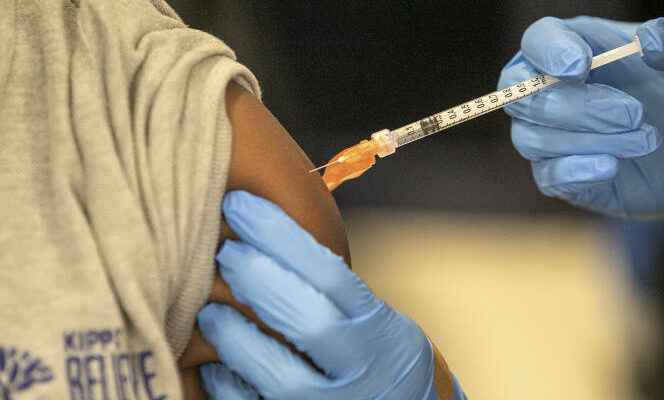Messenger RNA vaccines may cause the heavy menstrual bleeding reported by some women after their vaccination. The pharmacovigilance risk assessment committee of the European Medicines Agency (EMA) estimated on Friday October 28 that this bleeding could be “considered a potential adverse effect of vaccines” of Pfizer and Moderna, according to this conclusion reported by the National Medicines Safety Agency (ANSM). These effects will now be added to the summaries of product characteristics and package leaflets of these two vaccines.
Menstrual disorders reported following vaccination with a messenger RNA vaccine (such as those from Pfizer-BioNTech and Moderna) had been closely monitored at national and European level since their detection. Multiple testimonies evoked the appearance of disorders after vaccination against Covid-19, but the health authorities had not yet established a causal link.
More than 3,000 declarations
In July, the women concerned were notably invited by the ANSM to declare them. The French Medicines Agency recalls having brought to European level all the data collected by the French pharmacovigilance system and the results of the analyzes carried out.
Between July and September 2022, 2,952 cases of menstrual disorders were reported with the Comirnaty vaccine (from Pfizer-BioNTech) and 515 with the Spikevax vaccine (from Moderna). The majority of these declarations were made directly by the patients. Some declarations relate to very previous events, possibly dating back to the spring of 2021.
No observed effect on fertility
The EMA’s risk assessment committee states in a press release that it does not know the frequency of these adverse effects and recommends consulting a doctor in the event of “post-menopausal bleeding” or changes observed during the period of menstruation. The committee also encourages both patients and healthcare professionals to continue to report cases.
“There is no suggestion that the menstrual disorders that affect some people have any effect on reproduction or fertility”nevertheless reassures the European committee. “Available data confirms that the benefits of these vaccines far outweigh the risks”he insists.
Reported menstrual disorders mainly concern changes in the duration and intensity of bleeding, whether or not associated with pain. They are most often “not serious” and transients, explains the ANSM. In some patients, however, there is a possible persistence of these effects around six months. A more precise analysis of these cases is continuing, assures the ANSM.
